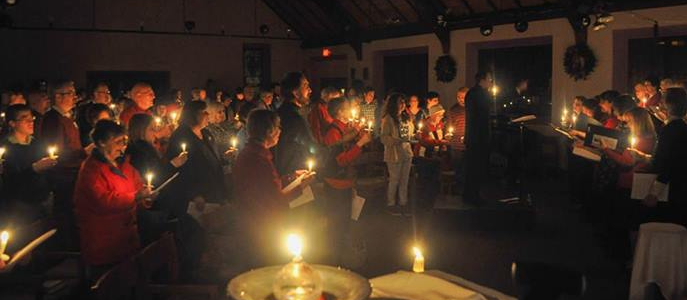4 Ways to Win Between Christmas and New Year’s Day
In the week between Christmas and New Year’s Day, consider these four ways to refresh from a hectic ministry year.
Every job has its perks. Netflix doesn’t track vacation hours. Facebook has nap pods. Ben & Jerry’s rewards its employees with three pints of ice cream every day. And if you’re a ministry leader, most likely you get the week off between Christmas and New Year’s Day. (Hey, we’re not drawing comparisons here, just stating facts!)
The weeks leading up to Christmas can be some of the most joyful and impactful of our ministry careers. We often get a front-row seat to the radical generosity of our faith communities. We hear and celebrate stories of life change. On the other hand, these weeks are also some of the toughest on our minds, bodies, and families. After all the planning meetings, shopping, decorating, video shoots, rehearsals and services are finally complete, the seven days between Christmas and New Years are a welcome reprieve from the hustle. And while you may immediately begin to feel the urgency of the Spring calendar around the corner, remember that this week offers you some unique opportunities to grow as a leader (and a human) more than any other week throughout the year.
After a season of commitments to your ministry, here are four commitments you might consider making to yourself on the morning of December 26th.
1. Rest
Set your away message. Delete the Mail app from your phone. Disconnect in all the ways you have to and truly rest. Christmas services have likely emptied your tank, so find ways to refuel your mind and body in the ways you need most. Sleep, read fiction, laugh, go on a nature walk, eat three pints of ice cream, build a nap pod and then sleep some more. Find the ways that rejuvenate your physical, emotional, mental, and spiritual ecosystem, and make a plan to give those things focused attention this week. As we’ve learned from our friend Candi Shelton, “Our leadership and ministry actually thrive when we are connected to the experience of being human.”
Read: Why Rest Matters for Human Leaders
2. Play
Discover ways to inject some fun into this week. In my own life, I’ve found that the moments I have been most exhausted or weary have also been the moments I’ve been completely disconnected from the unique things that give me life. This week, ask yourself, “What brings me joy?” and commit to making it happen. It might be pursuing something creative like art, dance, or scrapbooking, binge-watching your favorite movies from when you were a kid or planning an outdoor adventure with friends or family. See how much more inspired you’ll be to return to work when you’ve awakened your innate drive for play.
3. Learn
Leaders are learners. And, if we’re not intentional, ministry has a special way of keeping you working in it instead of on it. Consider carving out one day this particular week to learn about a subject you feel like you never have time for – work-related or non! Read a few chapters from your favorite author on leadership, find that podcast you saved ages ago, or review notes from a conference and create some action steps. You may also want to use this time to research and plan some time for individual or group learning next year. Think through book studies or online courses (like those from Orange Masterclass) that you may want to lead with your team or set new ministry goals based on learning from the past year utilizing tools like the Orange Assessment.
Remember
Lastly, this week offers the perfect opportunity to practice the art of remembering.
“Remember the wonders He has done, His miracles, and the judgments He pronounced” (1 Chronicles 16:12 NIV).
Take the time to reflect on the goodness of God throughout 2022. Note the highs, lows, your greatest lessons, and dream of how you want to grow and move forward as a leader next year. Worship is remembering! Personally, my favorite tool to use is called the Great Annual Examen. It is derived from a 400-year-old method of prayer by St. Ignatius of Loyola. Developed by Stephen W. Smith, it’s a simple question-and-answer exercise that invites you to review five categories of health – physical, emotional, vocational, relational, and spiritual – and then guides you through a process of thinking through how those may be improved or restored in the new year.
Win the week between Christmas and New Years and give yourself the greatest chance to enter 2023 with the strength and mental clarity necessary to reach the next generation.
Article written by: Daniel De Jesús
Article taken from here.
Find more blogs at MinistryJobs.com/blog










